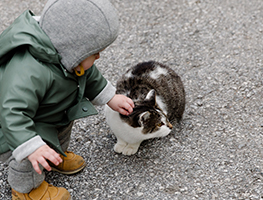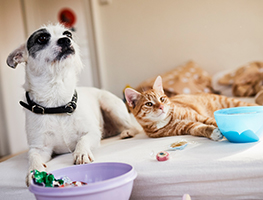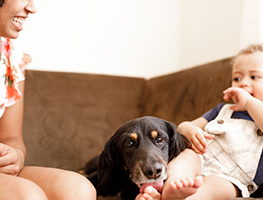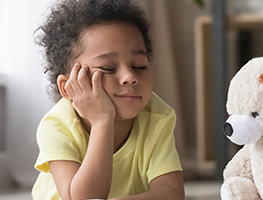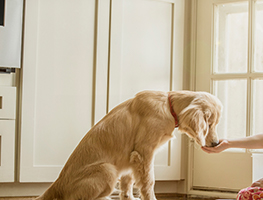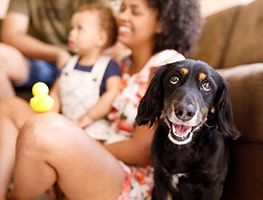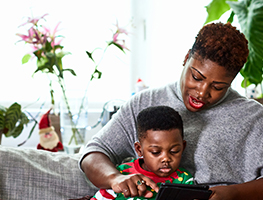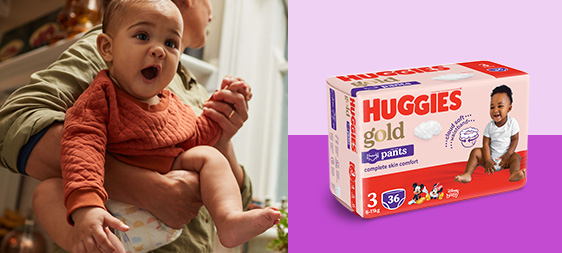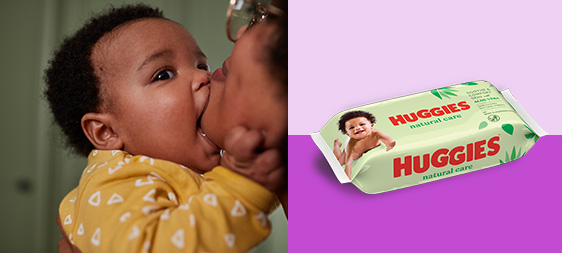Bringing a baby into a household is an exciting but busy time. There are big changes for everyone and that includes our pets who may no longer receive the attention they are used to. Pets usually adapt very well to the arrival of a baby but it is important to plan properly and be sensible with your actions.
Prepare well in advance
Pets are often substitute children before the arrival of a baby and people often feel guilty knowing a human baby will soon become priority. As a result, people often spoil their pet in the lead up to the baby arriving because they want the pet to have as much love and affection as possible. This may include being allowed for cuddles on the bed or couch, extra treats, more walks etc. Other people, sadly, seem to just discard the pet after baby is born, delegating it to the backyard as though its use-by date is gone.
Unfortunately, this is the wrong approach and you need to start making any changes to your pet’s routine well in advance of giving birth. You don’t want your pet to associate the baby with any major changes to its lifestyle. Instead, we want the baby to be seen as a positive thing in the eyes of your pet. If your pet is no longer going to be allowed in the bedroom, on the couch or inside the house, start making those changes several months in advance.
Problem behaviours
Problem behaviours such as jumping up, pulling on the leash and barking need to be dealt with as soon as possible. Enlist the help of a dog trainer if needs be, as the more obedience training you can give your dog, the better. The last thing you want is a boisterous pooch bowling you over every time you walk into the room. At the very least, your dog must learn to sit and lie down at your command, even from a distance. You want your dog to be comfortable spending time on its own and happy to be outside at your request.
Aggression
This is one type of behaviour you must not ignore. If your dog shows any signs of aggression to people or other animals such as growling, guarding or biting, you should seek professional help immediately. Many people get so anxious about their dog’s behaviour, they inadvertently send all the wrong signals to their dog which can make the problem worse. Don’t try and sort this one out yourself!
Prior to giving birth
At least a month prior to giving birth:
Set the nursery up and allow your dog to have a look around to familiarise itself with the sights, smells and sounds.
Buy a tape of baby noises and play at a low level until your dog in not interested in the sound of crying. Many dogs have never heard a baby cry before, so this is a great way to get them used to it.
Barriers: if you are worried about your dog (or cat) entering the nursery an option is to put up a temporary screen door or baby gate across the door. You will still be able to see and hear baby but will be comfortable knowing that your cat or dog has not curled up for a nap in the baby’s belongings.
Get used to walking your dog with an empty pram. People might think you are strange but there is quite a lot to manage when you have a dog and pram. This will also get your dog familiar with the pram and the different pace he/ she might have to walk.
Bringing baby home
A couple of days before baby comes home, bring a blanket or clothes with the scent of your baby on it so pooch can become familiar with the smell.
If possible, get someone to exercise your dog shortly before you bring your baby home so your dog is less likely to be excitable – especially because he/ she will not have seen you for a couple of days.
For the initial greeting with your dog, it is a good idea to have someone else hold your baby. Once your dog is calm, have someone bring the baby in. Don’t make a fuss about it - if your dog is curious, that is fine and if he/ she ignores the baby, that is fine too. If everyone can try to be positive and tell your dog what a good boy he is, that will help. Use treats to reward your dog for behaving nicely.
You really want your dog to see the baby as a positive thing, so whenever your dog and baby are in the room together, shower with praise and treats or even a game with a favourite toy. Ideally, enlist someone to help you with this. Your dog will start to associate the baby with fun times.
Give your dog its meals when the baby is present elsewhere in the room, so that the baby is there for this favourite time of the day.
Don’t get angry at your dog for taking baby’s toys as he/ she will not realise why you are shouting and may associate the smell of the baby with getting in trouble. You must manage this situation so that baby toys are not accessible to your dog.
Ask for help
Don’t be afraid to ask family and friends to help with walking, grooming, feeding etc. If you can afford it, hiring a dog walker is a wonderful way to ensure your dog still gets the exercise it needs and will give you some quiet time at home.
Supervise
Never leave a pet unsupervised around your baby, no matter how trustworthy you think they are.
Healthcare
Make sure you regularly treat your pooch for fleas and worms.
For more information see Kids and animals or Parenting.







